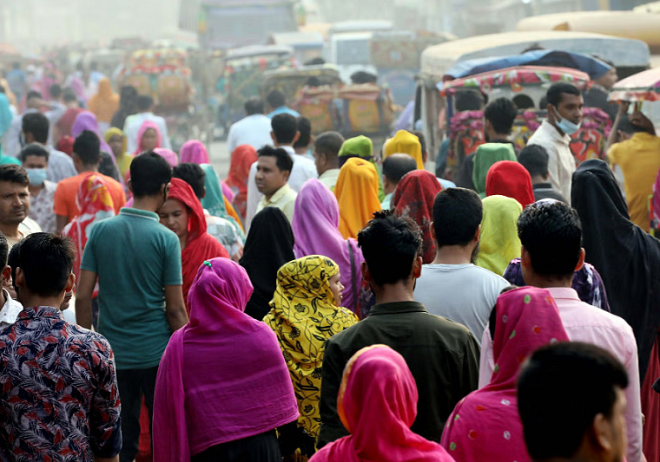Bangladesh RMG sector, which is significant in economic context, has been experiencing labor unrest for the past three weeks. The dispute mainly revolves around the workers’ demand for salary hike. A few days ago, a government-appointed panel recommended a 56.25 percent pay hike, but several labor unions protested against it. The impact of this continuous instability in the garment sector can affect many things beyond the main parties involved in the sector, so that not only the employees and company owners, but the whole nation can suffer through it.

Figure: The workers must understand that no movement for their rights can be made which can destroy the long-term prosperity of the sector.
While the current crisis may cause economic repercussions, it may also affect the livelihoods and initiatives of workers in the sector. If this situation continues, there is a growing possibility of a prolonged economic recession in the country, which could bring negative implications for the sector. Bangladesh’s garment sector plays an important role in maintaining economic stability within the country. Therefore, all involved in the sector must collectively strive to arrive at a mutually beneficial solution that effectively protects the interests of all stakeholders.
On the one hand, the garment sector continues to suffer from violence. As a result, the owner is likely to lose future orders if fails to deliver in due time. The workers must understand that no movement for their rights can be made which can destroy the long-term prosperity of the sector. On the other hand, garment owners also have to take care of the needs and wants of their workers those who work tirelessly to keep the economic wheels of the country moving.
There is no denying that it is difficult for workers to maintain a satisfactory standard of living with what they are paid. At the same time, they need to understand that the owners are also going through a difficult time dealing with the economic consequences of the Covid-19 pandemic and the global economic recession caused by the war between Russia and Ukraine. All parties must actively participate in a collaborative effort to find an effective solution to effectively address this ongoing problem.
Workers must understand the significance of their activities and realize how growing unrest can worsen an already fragile situation. Workers directly involved in the industry may end up bearing the worst of the unexpected impact of events. Prolonged violence and unrest may destabilize this industry. The potential negative consequences of these findings could affect the lives of families and communities dependent on the garment sector. Workers should strive for their rights in a way that protects the long-term well-being of the industry and ensures a sustainable future for themselves.
The state, along with employers and workers alike, can be greatly affected by this impasse. A possible consequence of violence in the garment sector could be a significant drop in orders from international buyers, which could affect the flow of foreign remittances which play an important role in the economy of Bangladesh. The potential impact of this situation could have substantial and far-reaching effects on the general economic stability of Bangladesh.
Therefore, the government should immediately give more attention to this issue to mitigate any potential concerns. Collaboration between workers, garment owners and other stakeholders including the state is crucial to solving this problem. Through this it is possible to solve ongoing problems, which are essential for a sustainable future for workers, garment owners and other stakeholders including the state.
News Sources : textiletoday
















